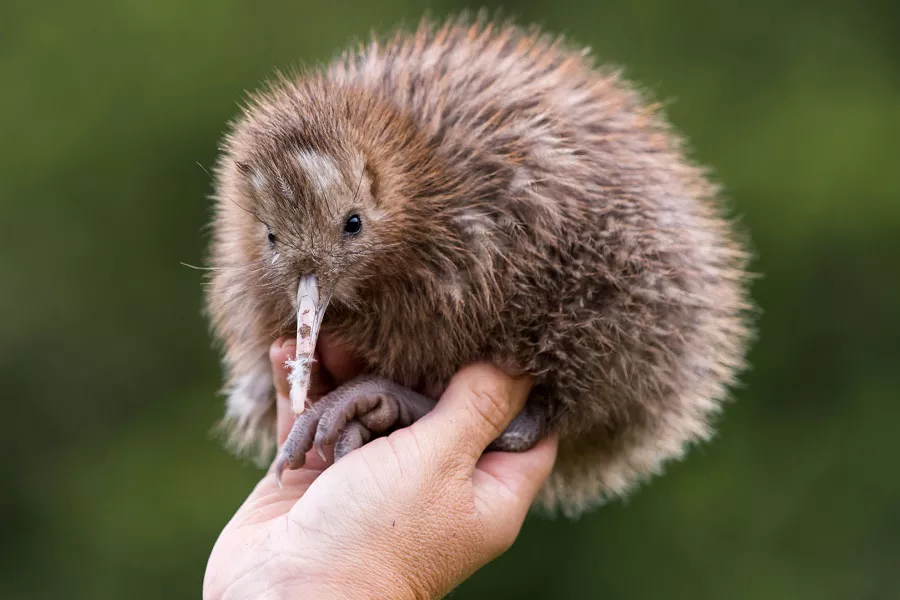Kiwi birds, native to New Zealand, are a unique and intriguing avian species. Despite their fame, there are many lesser-known aspects about these flightless birds that make them truly remarkable. In this article, we explore ten fascinating facts about kiwi birds, shedding light on their distinctive characteristics, behaviors, and significance within the natural world.
1. Iconic National Symbol
Kiwi birds hold significant cultural importance in New Zealand, is the national bird of New Zealand, serving as a national symbol and embodying the country’s unique biodiversity. Their image is featured on various New Zealand coins, stamps, and emblems, representing the pride and identity of the nation.
2. Flightlessness
One of the most distinctive features of kiwi birds is their lack of wings. Unlike most birds, which use their wings to fly, kiwis have tiny, vestigial wings that are useless for flying. This adaptation is thought to have evolved because there were no predators on the ground in New Zealand, so there was no need for the birds to fly.
3. Nocturnal and Burrowing Behavior
Kiwi birds are nocturnal and spend most of their time foraging for food at night. They’re also burrowing birds and use their long beaks to probe the ground in search of insects, worms, and other small creatures. Kiwis are known to dig burrows up to three feet deep!
4. Exceptional Sense of Smell
Kiwi birds have an excellent sense of smell, thanks to their large nostrils at the end of their beaks. They use their sense of smell to locate food, mates, and even to navigate through their burrows in the dark. Their long beaks are equipped with sensitive nostrils near the tip, allowing them to detect earthworms, insects, and fruits hidden beneath the ground or leaf litter.
5. Lays Large Eggs
Despite their small size, kiwi birds lay some of the largest eggs relative to their body size of any bird species. Kiwi eggs can weigh up to 20% of the female’s body weight! The female kiwi incubates the egg for around 70-80 days before the chick hatches.
6. Long Lifespan
In the wild, kiwi birds can live up to 40 to 50 years, making them one of the longest-lived birds in the world. This longevity is due in part to the fact that they have few natural predators in New Zealand.
7. Subterranean Foragers
Kiwi birds are skilled foragers that feed on a variety of invertebrates and fruits. Using their long beaks, they probe the soil and leaf litter, extracting worms, grubs, spiders, and other small creatures. This subterranean feeding behavior is a distinctive adaptation among kiwi birds.
8. Unusual Feathers
Kiwi birds possess unique feathers that differ from those of most bird species. Their feathers lack barbs, which are the interlocking structures that give feathers their typical structure and strength. This adaptation provides kiwi birds with a softer, more hair-like appearance.
9. Endangered Species
There are five species of kiwi birds, all of which are classified as endangered or vulnerable. The biggest threats to kiwis are habitat loss due to deforestation and the introduction of predators such as stoats, dogs, and cats. Conservation efforts, including predator control and habitat preservation, are crucial for their survival.
10. Vocal Abilities
Kiwi birds have distinctive vocalizations, communicating through a series of whistles, trills, and snuffling sounds. Males use vocalizations to attract mates and establish territories, while females respond with their own unique calls.
Conclusion
Kiwi birds are enchanting creatures with a range of intriguing characteristics. From their flightless nature and nocturnal lifestyle to their exceptional sense of smell and subterranean foraging techniques, these birds have captivated the world’s attention. However, their vulnerable status emphasizes the need for continued conservation efforts to protect their habitats and ensure their long-term survival. By celebrating and safeguarding these unique avian treasures, we can contribute to the preservation of New Zealand’s natural heritage and the ongoing wonder of kiwi birds for generations to come.


 Facebook
Facebook  Instagram
Instagram  Youtube
Youtube 